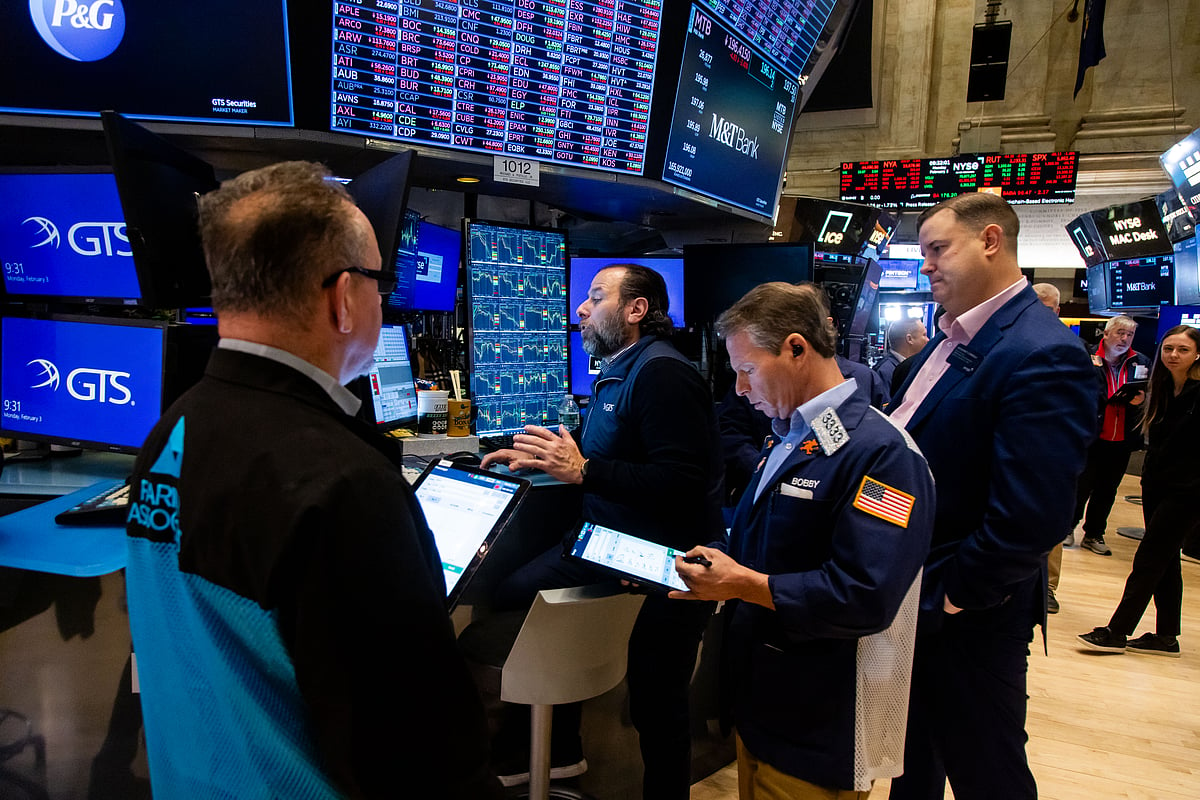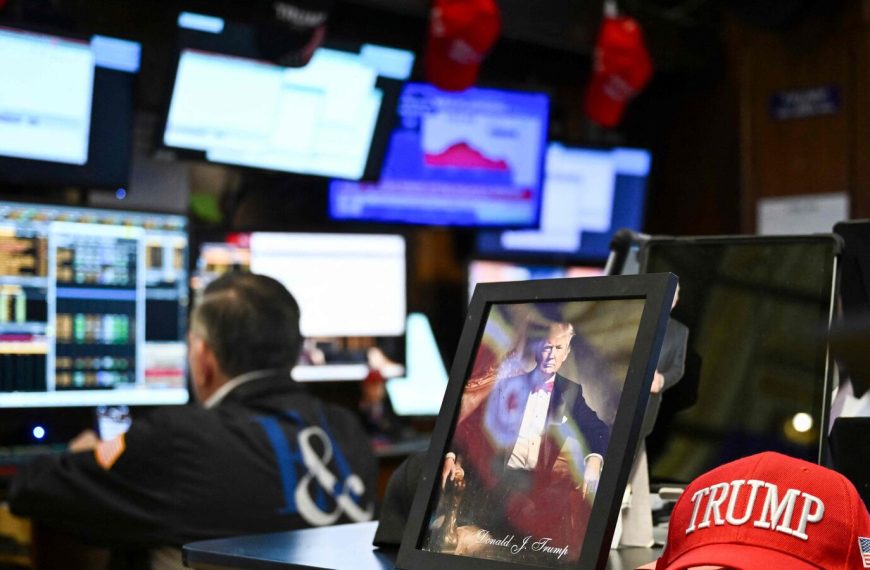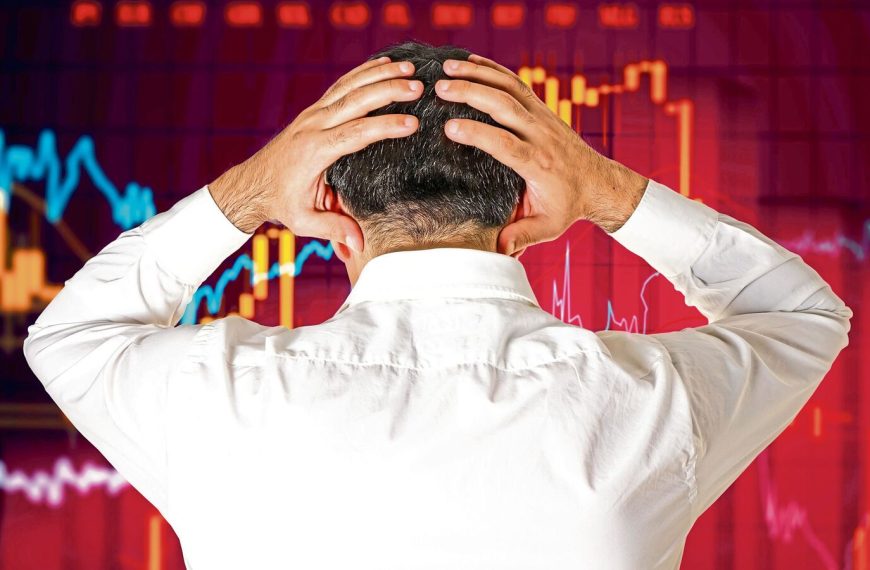The recent escalation of tariffs under the Trump administration has sent shockwaves through global financial markets, leading to significant declines in stock values and a surge in demand for safer investment options. As investors grapple with the ramifications of these trade policies, concerns mount about their potential impact on the U.S. economy. This turmoil raises questions about the future of American equities and the overall economic landscape.
Global Market Reaction to Tariff Increases
On Thursday, a wave of selling swept across U.S. equities as uncertainty about the economic fallout from the tariffs intensified. The S&P 500 plummeted 4.3%, while the Nasdaq 100 and Dow Jones Industrial Average fell 4.9% and 3.7%, respectively. The Russell 2000 index, representing small-cap stocks, experienced a staggering decline of 6.7%, marking a drop of over 20% from its peak in late 2021. The Cboe Volatility Index, often referred to as Wall Street’s "fear gauge," surged past 28, signaling heightened anxiety among traders.
Bond Markets Rally Amid Stock Declines
As stocks faltered, investors flocked to fixed-income assets, propelling a notable rally in global bond markets. The yield on benchmark U.S. Treasuries briefly dipped below the 4% mark, while other bond yields also fell to session lows. Analysts speculate that there is now a 50% likelihood that the Federal Reserve may implement four rate cuts this year, reflecting a shift in market sentiment towards a more cautious economic outlook.
Economic Concerns and Tariff Implications
Economists warn that the substantial increase in tariffs could lead to rising prices for consumers and slower economic growth, with some even suggesting the possibility of an impending recession. Mary Ann Bartels from Sanctuary Wealth expressed that the current situation represents a "worst-case scenario" for tariffs, indicating that if these measures persist, the economy is set for a marked slowdown.
- Key Points:
- Tariffs are likely to increase U.S. consumer prices.
- Economists predict a slowdown in economic growth.
- The possibility of a recession is becoming more pronounced.
Shifts in Investment Strategies
As market volatility escalates, strategists are predicting a shift in investment patterns, with an increasing rotation from U.S. equities to international stocks. Global strategists at HSBC, including Alastair Pinder, noted that the unexpected size of the tariffs, coupled with their timing, poses significant risks to U.S. corporate earnings.
Market Predictions and Future Outlook
Technical analysts suggest that the S&P 500 could struggle to stay above the critical 5,500 level, a psychological threshold that, if breached, may deter potential investors. Solita Marcelli from UBS Global Wealth Management anticipates that market uncertainty will remain high in the coming weeks, as investors adjust their expectations for U.S. economic growth and earnings.
- Outlook:
- Continued volatility is expected as markets react to economic forecasts.
- The potential for negotiations to ease tariff pressures could provide some support.
- Analysts remain cautiously optimistic about a year-end recovery.
Currency and Commodity Reactions
The dollar’s decline amid the risk asset selloff has sparked debates about its status as a safe haven. Hedge funds are increasing their bearish positions on the dollar against currencies like the yen and euro, while also preparing for heightened market volatility as the year progresses.
In summary, the repercussions of the Trump administration’s tariff policies are reverberating through various asset classes, instigating a flight to safety in bond markets while triggering significant declines in stock prices. As investors brace for uncertainty, the future of the U.S. economy hangs in the balance, with many awaiting further developments in trade negotiations and monetary policy.











